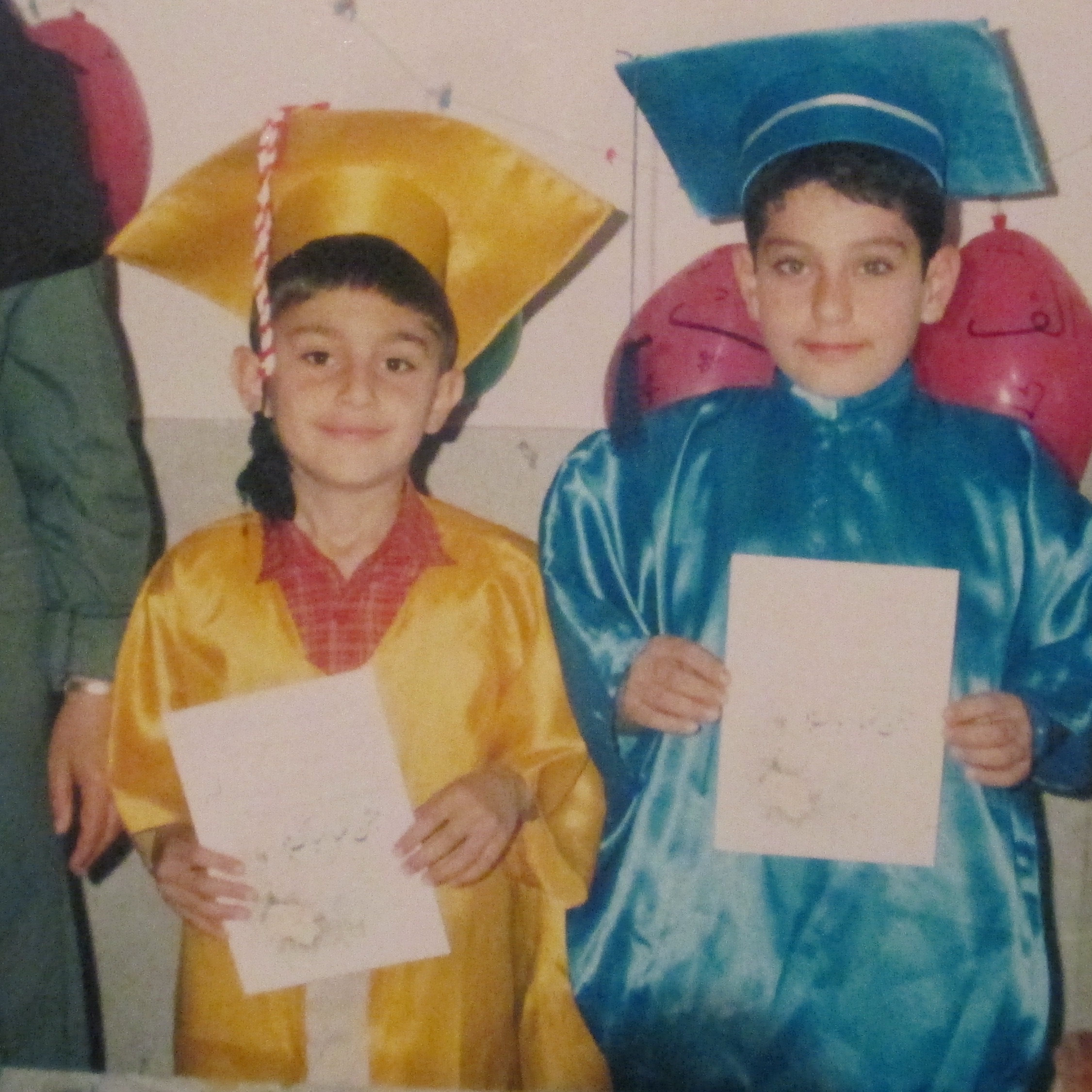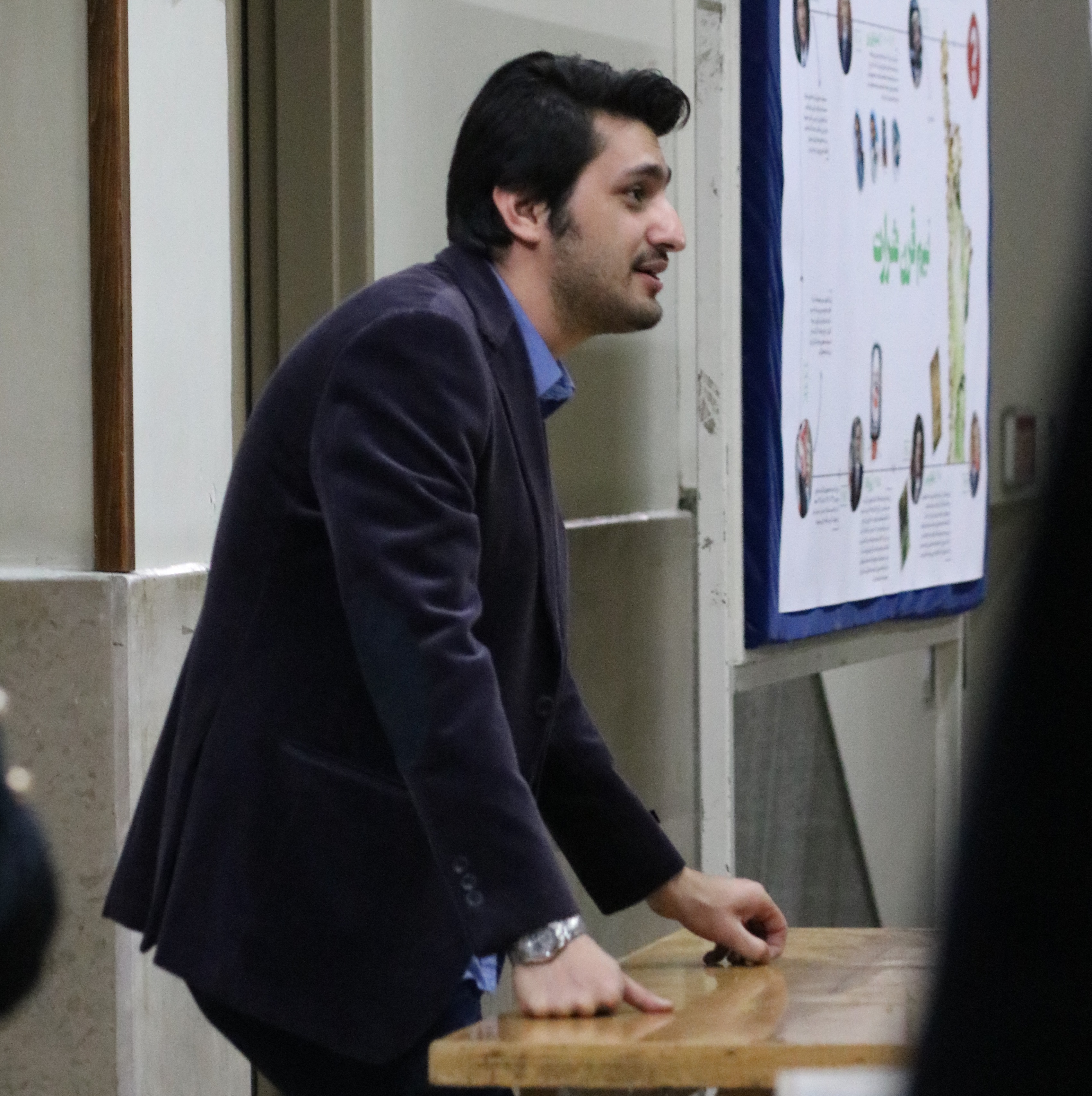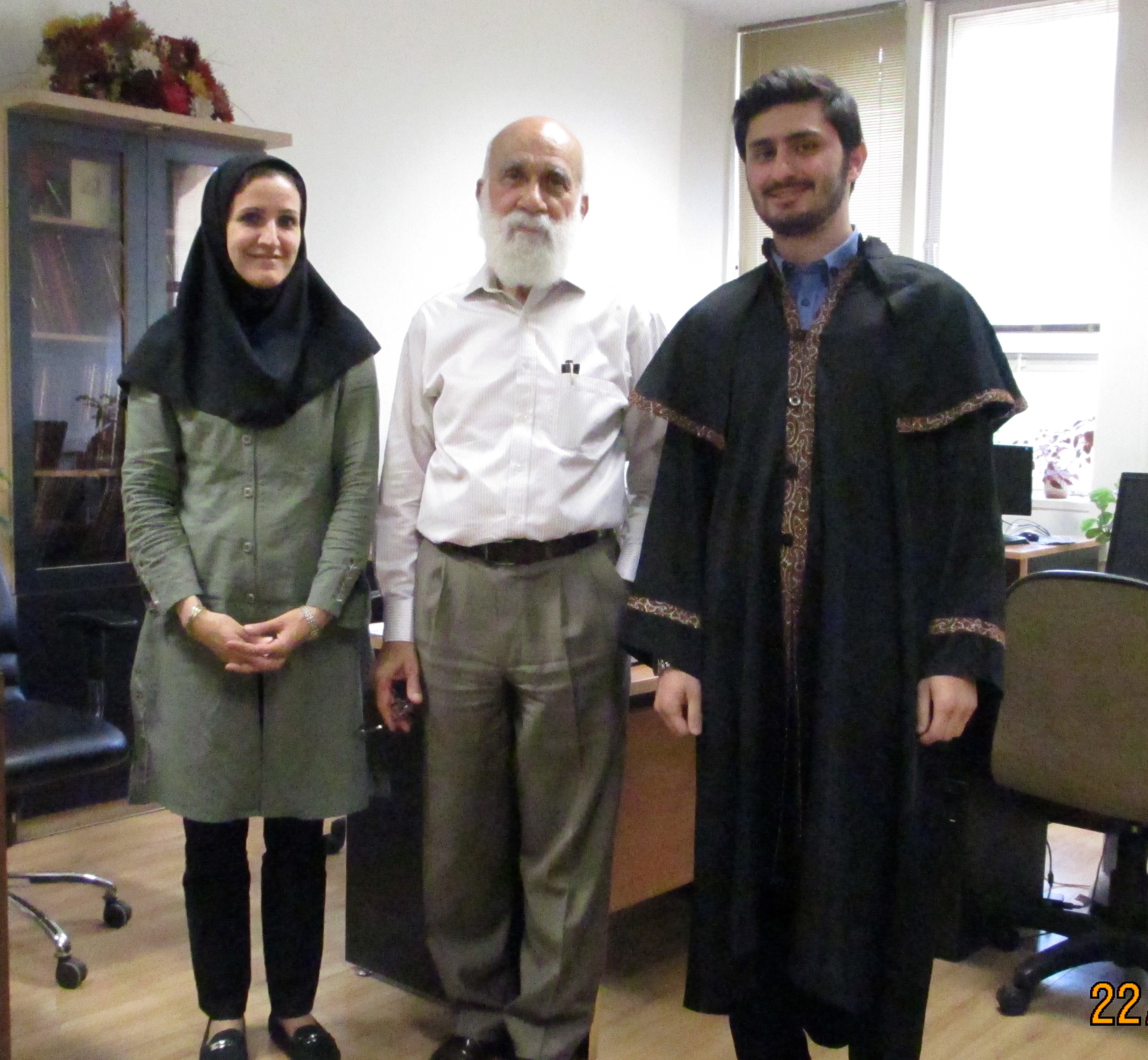-

Childhood
My name is Arash Fouman Ajirlou. I grew up in Karaj, Iran; with a wonderful (and a little bit "silly") friend, Kiarash. Both of our fathers were research scientists in the fields of agriculture. Since our very young ages, we spent a lot of time in their research fields. We used to scrutinize their behavior, and act like them later. I believe this was the very first step to build a research spirit in me. I was a curious boy, since I remember! I was at age 4 when I found out the function of DC motors by breaking my car toys. Unbelievably, Kiarash was my crime partner! I had an unfulfilling thirst for mathematics. I remember my father teaching me basic mathematics (summations, subtraction, and multiplication) before my school age. In high school, I studied Mathematics and Physics. I took part in Iranian Mathematics Olympiads, which I was a semi-finalist of. And eventually, I ended up studying computer engineering at university level. I carried the curiosity, coupled with motivation, from my very childhood to my higher academic studies at UT, where they found the chance to evolve.
University of Tehran
I graduated with B. Sc. in computer engineering from the School of Electrical and Computer Engineering, Faculty of Engineering, University of Tehran, Iran. Admission to UT, the oldest and the most prestigious university in Iran, was a life-changing incident in my academic career. It was then that I found real purpose in my life. Since my first semester I started my journey of finding the most appropriate path for my future. Taking part in the annually-held Artificial Intelligence Contest for freshmen, in which my group ranked the third, was an important first step. Simultaneously, I invested a fair amount of time and energy, striving to expand my knowledge and understanding of computing systems including software engineering concepts such as object-oriented programming and algorithms. I also took an increasingly wide range of courses on digital logic design and electronics which opened a new and exciting horizon of the digital and electronics world to me. Thereafter, I took part in different talks, conferences, and workshops to obtain a more profound understanding of these fields and related research areas. I also did some outstanding projects on FPGAs (using Verilog and VHDL HDLs), Object-Oriented programing (using C++), and assistantship appointments which provided me with the insights of design algorithms, signal processing, digital systems architecture, analog circuits, and some of the challenges in research projects (please refer to RESEARCH tab for more details). The mentioned experiences helped me to obtain an understanding in these areas, and boost my teamwork and team management skills, which eventually led to my election as the Secretary of the Professional Committee of Electrical and Computer Engineering at Alumni Association of Engineering Faculty, UT. -

Assistantship Appointments
Starting from my fifth semester, I felt the urge to be more effective. With the support of my very beloved professors ( Dr. Nasehpour and Dr. Shabankhah), I had the opportunity to be their teaching assistant for Mathematics1. At the same time, I undertook the assistantship for Electronics 1, which led to an amusing history of my teaching assistant for that course! This semester, even after my graduation, I was chosen as its TA without any former notice. Like: "Arash! You're Electronics 1 TA. You start this Saturday (in Iran weeks start by Saturday). Eventually, I ended up as the TA for numerous courses, which has been my greatest pleasure to have the chance to provide little service to Faculty of Engineering (a.k.a Fanni) young scholars. Besides, I have been research assistant in different labs. The experience was wonderful! It was then that I realized what is electrical and computer engineering about. It sketched a big picture of what my future would like, and I have to confess: it is awesome! You can find more details of what I did as an RA in the RESEARCH tab. -

Bachelors' Dissertation
I did my bachelors' project under supervision of Dr. Zainalabedin (Zain) Navabi. The primary purpose of my dissertation is to verify the applicability of the formerly proposed method by a M. Sc. student of Dr. Navabi - i.e. Early Prediction. I also focused on devising new methods under Better than Worst-Case design regime. My attempts led to Low Overhead Technique towards online timing Error Resilience (LOTER). I successfully defended my dissertation with 20 out of 20.
